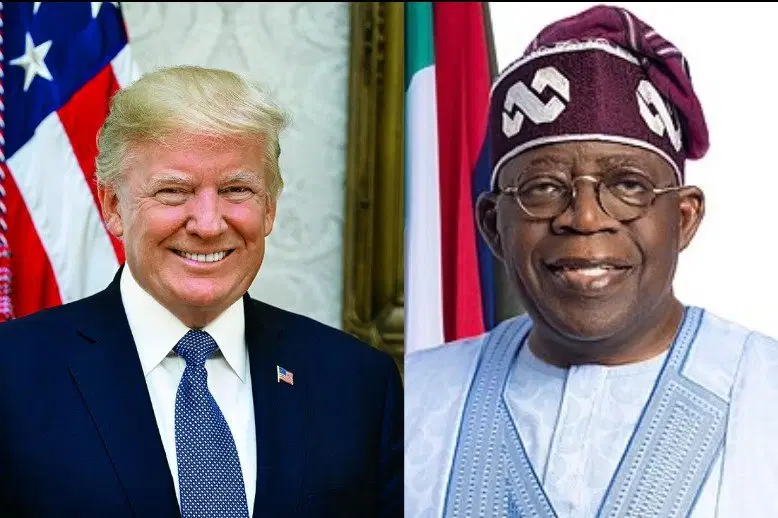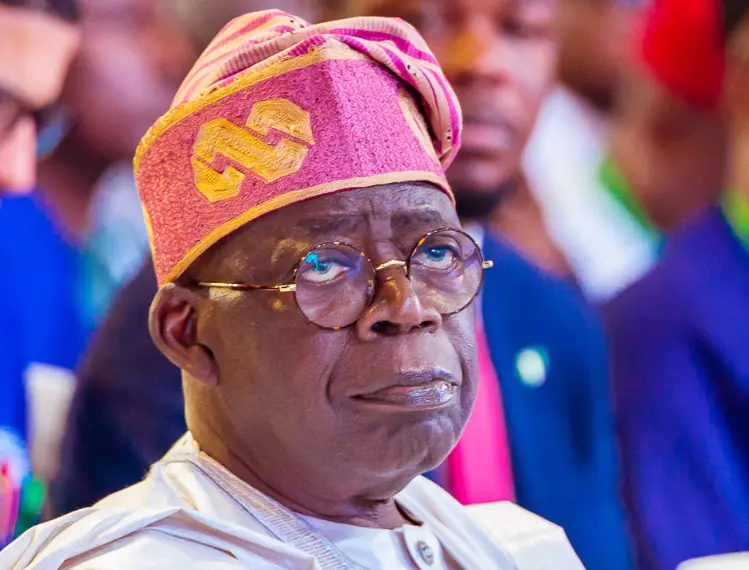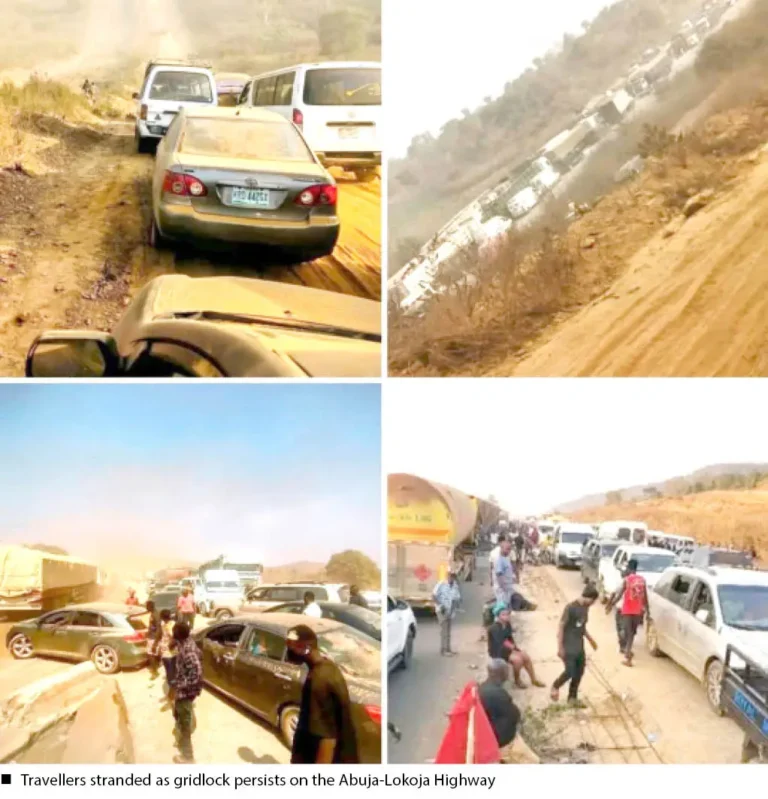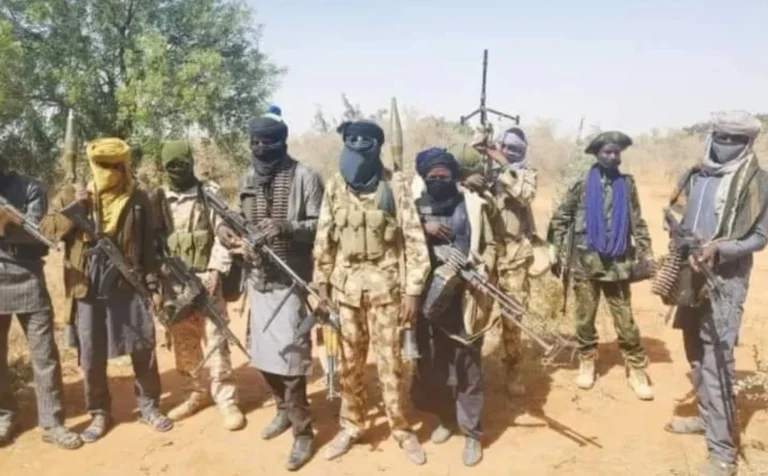
The Federal Government said yesterday that ongoing diplomatic engagements between Nigeria and the United States were producing positive results towards easing tensions in both countries’ relations.
The government spoke on a day United States Congressman, Bill Huizenga, expressed disappointment in the Nigerian government’s handling of ongoing attacks on Christians, calling for economic sanctions, rather than military intervention.
Meanwhile, the Secretary of the Dicastery for Evangelisation at the Vatican, Archbishop Fortunatus Nwachukwu, has warned that Nigeria’s insecurity was self-inflicted, blaming the country’s deep divisions and growing intolerance for its unending cycle of violence.
But the Christian Association of Nigeria, CAN, in the 19 northern states and the FCT, yesterday urged Nigerians to embrace dialogue as the best way to resolve the country’s challenges.
Similarly, the pan-Yoruba socio-political organisation, Afenifere, said adopting the conventional ‘war approach’ was not the way to solve the terrorism challenge in Nigeria, noting that terrorism was multifaceted.
On the engagement with the US government, the Minister of Information and National Orientation, Mohammed Idris, said talks between both countries were yielding positive results.
Speaking on the UK-based Sky News programme, “The World With Yalda Hakim,” on Monday night, Idris confirmed that constructive dialogue was underway and yielding mutual understanding.
“Channels of communication have been opened, I can confirm that. We are talking to them, and I believe they are now appreciating the situation better.
‘’Much of the earlier misunderstanding arose from an incomplete grasp of the diversity and complexity of our domestic challenges,” he said.
The minister also revealed that intelligence had established links between a proscribed separatist organization in Nigeria and certain U.S.-based lobby groups allegedly working to misrepresent Nigeria’s situation to American policymakers.
He said: “We have observed a direct connection between lobbyists in the United States and a proscribed terrorist group in Nigeria. These groups are actively engaging influential people in the U.S. to advance misleading narratives.’’ Reaffirming Nigeria’s longstanding partnership with the United States in combating terrorism, Idris urged renewed cooperation to address ongoing security challenges.
“Yes, we acknowledge that there are conflicts and security issues in parts of Nigeria. However, the United States has in the past been a dependable ally in helping our country manage such situations.
‘’We are once again calling for that partnership to be strengthened so that, together, we can achieve lasting peace,” he said.
Expressing surprise at recent reports and statistics emerging from the U.S, the minister said: “We want the world to know that Nigeria shares the concerns about the tragic incidents occurring in some regions, but it is important to understand the diversity and complexity of our society. Some of the figures being circulated cannot withstand scientific scrutiny.”
Reaffirming Nigeria’s commitment to religious freedom, the MInister said: “Our constitution guarantees freedom of religion. Nigeria remains a multi-faith country, and the current conflicts are not driven by religious persecution.”
FG not doing enough to end Christian killings —US Congressman
But United States Congressman, Bill Huizenga, has expressed disappointment in the Nigerian government’s handling of ongoing attacks on Christians, calling for economic sanctions, instead of military intervention.
In an interview with Arise News in Washington, DC, Huizenga called for targeted sanctions, instead of US military intervention amid genocide allegations in Nigeria.
Huizenga, a key advocate for President Trump’s resolution designating Nigeria as a “country of particular concern,” said he was “shocked” by Trump’s recent comments about a potential invasion but agreed that religious persecution must end.
The Congressman said Nigeria risked repeating the tragedies seen in Rwanda and South Sudan if action was not taken swiftly.
His words: “We were too late on Rwanda, we were too late on South Sudan. Let’s not be too late again on this one.’’
He highlighted the plight of victims attacked by Fulani militants and radicalised Islamists, noting that both Christians and moderate Muslims had been targets of coordinated violence.
The US lawmaker said he had personally spoken with religious leaders and villagers who described being attacked in their homes and “feeling very much targeted.
Reacting to President Trump’s viral remarks that “Christianity is facing an existential threat in Nigeria”, Huizenga clarified that he didn’t foresee actual U.S. military invasion.
“I don’t envision a surprise attack or a military response. Economic pressure and sanctions on individuals and organisations would be more effective.
“Sanctions really cut off the flow of money and travel. We don’t know who is financing these operations, but economic pressure will have a positive impact,’’ he said.
Huizenga further criticised the Nigerian government’s response, saying it has been dismissive and insufficient.
He said: “They need to demonstrate what they are doing to protect not just Christians but all citizens. Their response has been, ‘there’s really not a problem.’ Well, I think there is.”
The lawmaker, who noted that the continued instability was threatening Nigeria’s economic growth and foreign investment, said: “When you can’t guarantee the safety of workers or businesses, you have a problem. It’s in Nigeria’s best interest to address the root causes of this violence.”
Tinubu, COAS meet behind closed doors
Also yesterday, President Bola Tinubu met behind closed-doors with the Chief of Army Staff, COAS, Lieutenant General Waidi Shaibu, at the Presidential Villa, Abuja, amid the security challenges in the country.
This is as the army chief has assured Nigerians to expect improved security nationwide after briefing the President.
Speaking to journalists after the closed-door meeting, Lt. Gen. Shaibu said his assessment of current security operations, particularly after his recent visit to the Northeast, indicated encouraging progress.
On what Nigerians should expect in the coming weeks, he confidently said: “Improved security across the country.”
Shaibu explained that his briefing to the President covered the outcome of his operational tour of the Northeast theatre of operations as well as updates on the broader security landscape.
He said: “I came to brief him on the outcome of my visit to the Northeast and then look at other security situations across the country, which was satisfactory within this period.”
Although he did not provide specific details on operational plans, the Army chief’s assurance comes amid intensified joint operations targeting insurgents, bandits, and other violent groups across several states.
The assurance is coming on the heels of attack by the Nigerian Air Force over the weekend that routed terrorists in Borno, Katsina, Kwara states, among others, in their hideouts, neutralising hundreds of them.
Nigeria bleeding from its own divisions — Vatican Envoy
Reacting to the development yesterday, The Secretary of the Dicastery for Evangelisation at the Vatican, Archbishop Fortunatus Nwachukwu, warned that Nigeria’s insecurity is self-inflicted.
Speaking at the Catholic Secretariat of Nigeria, Abuja, during his reception and induction into the Knights of St John International, Nigeria Subordinate, the Vatican envoy urged Nigerians to see diversity as a source of strength, rather than conflict.
“Differences are not supposed to be something negative. God made creation with differences, but He also made them to be united,” he said.
The Vatican envoy, one of the highest-ranking Nigerian prelates in Rome, said true peace would only come when Nigerians learned to build unity across faith and ethnic lines.
He said: “Our differences should not be a source of confusion. Our differences should be harnessed to be a source of beauty in our country. Division should not even be the problem, because whether we are Christians or Muslims, our unity flows from our knowledge of God.
“We believe in one God. We are all called monotheistic religions. So I don’t see why we should be having difficulty in creating ourselves, forming unity, in spite of our differences.’’
Archbishop Nwachukwu added that the country’s divisions had turned what should be blessings into sources of pain and insecurity.
“We could have differences according to our languages or ethnic origin, but we should all be able to use these differences to form our beauty in our unity,” he said.
Embrace dialogue, not anger over Trump’s comments, Northern CAN urges Nigerians
Assessing the situation yesterday, Christian Association of Nigeria, CAN, in the 19 northern states and FCT, canvassed dialogue as the best way out of the present face-off between Nigeria and the United States.
The chairman, Rev. John Joseph Hayab, who made the call in an interview with the News Agency of Nigeria, NAN, urged dialogue, rather than anger to comments made by foreign leaders.
Hayab said that human problems could best be resolved through constructive dialogue, adding that Trump’s comments should be seen as an opportunity to strengthen national conversation and promote peace among Nigerians.
“Donald Trump’s statement should be seen as an opportunity for constructive dialogue, not an outburst of anger,” Hayab said.
He explained that many Nigerians who initially reacted with anger were beginning to see the opportunity for reflection and cooperation that the development presented.
“I am glad to say that many of those who started viewing it with anger are now seeing opportunities.
“The different news conferences, confessions, and testimonies are leading faith actors and voices from different groups to start coming together to think of solutions, not complaining,’’ the cleric said.
According to him, the engagement is encouraging Nigerians, especially youths and women, to talk about the next steps for peace, instead of taking sides.
“What we need to do and where we need to go from here is amplifying those unifying voices and groups for peaceful resolution,” he said.
Hayab stressed that what every person and every group in Nigeria desired was for the killings to stop, not arguments over who was responsible.
“When we stop the killings, trust among the people will be restored and peace will become the centre of our nation’s growth and transformation,” he added.
Terrorism in Nigeria multifaceted; govt, security agencies should do more — Afenifere
In the same vein, the pan-Yoruba socio-political organisation, Afenifere, said yesterday that adopting the conventional ‘war approach’ was not the way to solve the terrorism challenge in Nigeria, as it was multifaceted.
The organisation, in a statement by the National Publicity Secretary, Mr Jare Ajayi, stated that terrorists in Nigeria, though not invincible, were not easily identifiable “because they mingle with the people who would later become victims.”
The group expressed worry over what it described as the speed with which US President, Donald Trump, was pursuing his goal of attacking Nigeria ostensibly to come and rescue Christians who, he alleged, were facing extermination.
The Afenifere’s spokesman said: “The approach to defeating terrorists in Nigeria requires tact, hard-track intelligence, diligence, commitment and sincerity on the part of those deployed to fight them.”
He recalled that The New York Times, on Wednesday, November 5, reported that the United States Africa Command, AFRICOM, had drawn up plans to attack Nigeria, including ‘heavy, (Option A) ‘medium’ (Option B) and ‘light’ (Option C).
Reacting to the report, Ajayi said: “Christianity is facing an existential threat in Nigeria. The United States cannot stand by while such atrocities are happening.
According to him, there is an aspect of the New York Times’ report that is alarming. He said the paper had reported that because of the feeling that limited air operations alone were unlikely to resolve Nigeria’s prolonged insurgency, there was the possibility of resorting to ‘a full-scale campaign, similar to those in Iraq or Afghanistan’.
He said: “The Nigerian government as well as some others have consistently denied the allegation of persecuting adherents of any faith, particularly Christians. But the refutations do not seem to dissuade the US government from its seeming determination to attack Nigeria to fight Boko Haram and others who are alleged to be carrying out genocide against Christians.
“Going by the aftermath of US’ interventions in Iraq and Afghanistan, only the enemies of Nigeria would wish for a similar thing to happen to her (Nigeria).
“Rather than toeing that path, Afenifere prefers intelligence/information sharing, training in modern surveillance and where necessary, limited airstrikes or drones (as contained in Plan C, ‘light’ operation) to deal with this multifaceted challenge.
“We believe that toeing this path with sincerity of purpose will achieve the desired objective of routing out terrorists and insurgents. We strongly believe there is no need whatsoever to launch “full scale campaigns similar to those in Iraq or Afghanistan.”
Trump didn’t lie about killing of Nigerians — Orji Kalu
Speaking on the issue yesterday, the Chairman, Senate Committee on South East Development Commission, SEDC, Senator Orji Uzor Kalu, APC, Abia North, said US President, trump, didn’t lie about killing of people in Nigeria but insisted both Christians and Muslims were victims of the killing.
Answering questions from journalists on comments by the United States government about attacks on Christians in Nigeria and Trump’s warning of possible military action, Kalu said: “Trump told the truth, Nigerians are being killed, whether they are Christians or Muslims.
“There are jihadists who just want to destroy Nigeria. We should blacklist them without pity, so they will be smoked out.”
The former Abia State governor, who disclosed that he had personally discussed Nigeria’s security situation with two former U.S. Presidents, one Republican and one Democrat and six sitting U.S. senators, said they all expressed readiness to assist Nigeria in tackling terrorism.
Kalu said: “Before President Trump says a word, the American intelligence community must have found out where these terrorists are located. You can see that the Nigerian Air Force is already acting, possibly using information shared by the U.S. to bomb terrorist hideouts. That’s how it should be.”
He said part of the global instability currently, stemmed from the U.S. invasion and elimination of Libya’s Muammar Gaddafi and Iraq’s Saddam Hussein which, he argued, led to the proliferation of arms across Africa.
He said: “When you killed Gaddafi and Saddam Hussein, it became a problem because those people were maintaining their borders. After their deaths, light and heavy arms spilled all over the world and we are suffering from it today.”
Kalu, who noted that contrary to speculation the U.S. was not targeting President Tinubu’s administration, but rather the jihadist elements responsible for insecurity in Nigeria, said “Nigerians are clapping hands and political opponents are thinking that the U.S. is after Tinubu’s government No! They are going after the jihadists.’’
VANGUARD.




